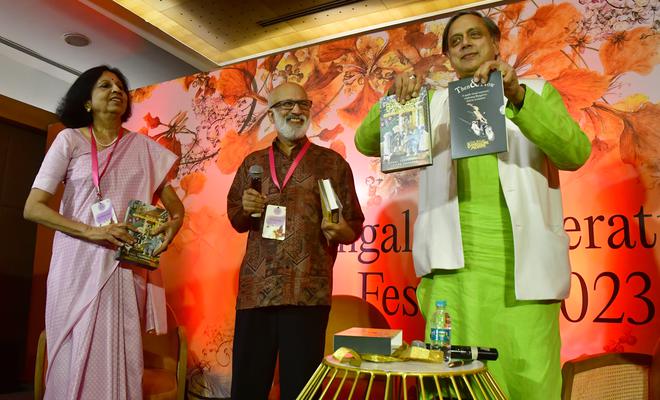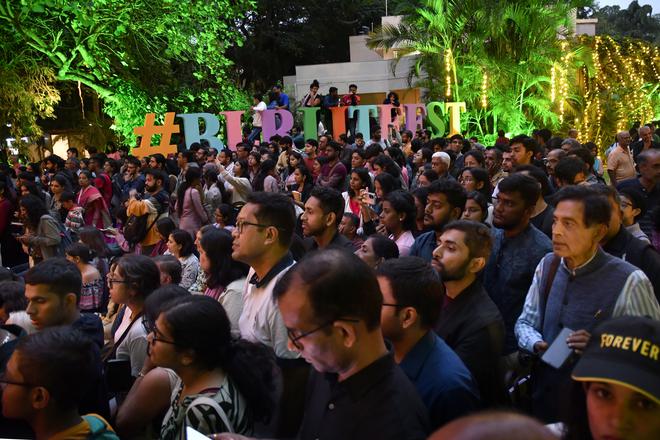From the complex genesis of the state of Israel to what India’s stand should be, the Israel-Palestine conflict was thoroughly dissected and closely examined by the experts in a session titled Fields of Fire: Conflicts Around the World at the Bangalore Literature Festival on Sunday (December 3).
In conversation with former diplomats Navtej Sarna and Talmiz Ahmad, along with Nitin Pai, the co-founder of the Takshashila Institution, journalist Neena Gopal began by asking Mr. Ahmad, the former Indian ambassador to Saudi Arabia, Oman and the UAE, about Doha and its significance to the current Gaza-Israel conflict.

“Qatar was the proponent of the Muslim Brotherhood and political Islam in general,” he says, going on to explain the evolution of the politics in that region. “It is possibly the only major country in the region that has close ties with Hamas. Therefore, it is not surprising that people should turn to Qatar and seek a substantial role for them in promoting a sort of ceasefire, truce, swap of hostages and ultimately, possibly, a peace process, “he said.
He also went on to delve into the disproportionate losses suffered by the Palestinians in this decades-long conflict.

Comparing the way in which the Israel-Gaza is framed when compared to the conflict in Ukraine, Mr. Pai pointed to a certain hypocrisy in the western world.
“Why should we now think that the Americans and the West and the liberal side of the world are any better than the Chinese and the Russians? Because each side seems to be just taking the position that is in their interest,“ he pointed out, adding, “The most influential actor is still the United States. And the United States has been seen as a very, very partisan, very hypocritical actor.”







